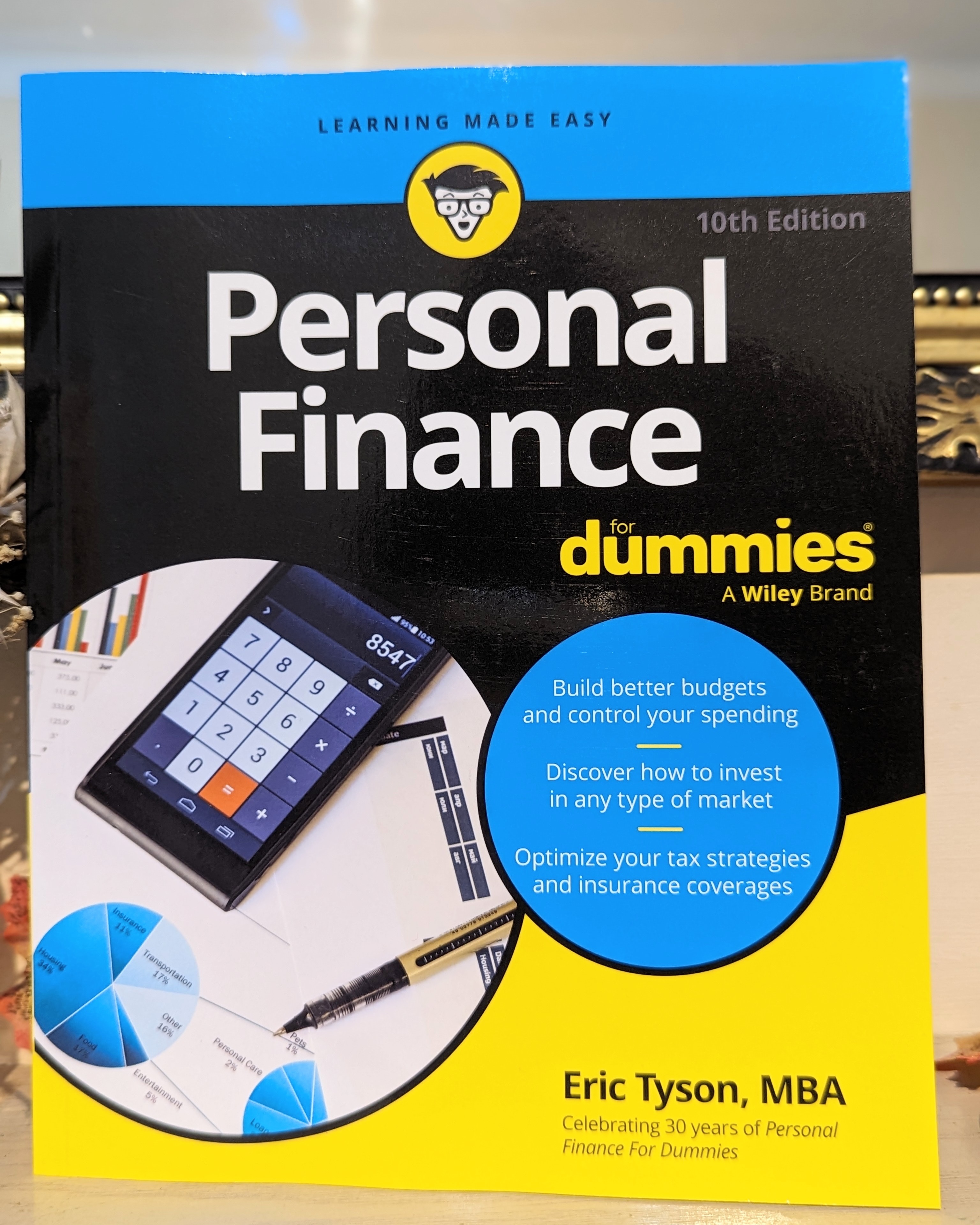
Finance and numbers have never been my favourite topics. I struggled with Maths in high school and, from what I saw, women weren’t expected to be that clued-up on finance anyway.
However, this all changed for me two years ago when my partner and I split up, and I had to learn, very quickly and efficiently, how to manage budgets on my own, while also navigating bookkeeping as a recently self-employed individual. I did various short courses, and I am always reading up on personal finance, but honestly, I wish that I was fortunate enough to have a copy of Personal Finance for Dummies back then.
Personal Finance For Dummies by Eric Tyson, has been tackling financial literacy for 30 years. This tenth edition continues to share the sound advice that’s helped millions of readers, as well as updated information such as recent tax law changes. It’s a comprehensive manual that covers everything from,
- Budgeting to boost your savings
- Tracking spending
- Preparing for retirement
- Taxes
- Lowering your phone bills
- Food costs
- Self-employed plans
- Working with real estate agents
Finance books can often be hard for me to get my head around, due to what I believe might be undiagnosed dyscalculia. However, I found Personal Finance for Dummies easy enough to process. Eric Tyson himself describes his book as, “Basic enough to help novices get their arms around thorny financial issues. But it challenges advanced readers as well to think about their finances in a new way and identify areas for improvement.”
One section which I found helpful was ‘Examining Your Credit Score and Reports.’ This walks you through what your credit data means, reviewing it and how to improve your credit report and score.
For women, the ‘Prioritizing Your Savings Goals’ section is an important read if you want to achieve financial independence. So many women are victims of financial abuse alongside coercive control, and it’s therefore important to know how to work towards having financial security.
There are pages with worksheets such as tracking your spending, where you can input your own data. It is also easy to skip to the sections which you need help with. There were sections that weren’t relevant to me right now, but it was still good to educate myself on these topics, if only to make myself feel more comfortable around having conversations with others.
One of my goals for 2024 is to achieve greater financial freedom and to be more confident in pitching myself to future clients at a price point that I deserve, as well as to improve my credit score. I also want to be in a position where I start saving more for my daughter’s future.
Personal Finance for Dummies has been a really insightful and helpful read. I have highlighted a fair number of topics that I want to go back to and improve my knowledge on, especially around savings and self-employed advice (something which I am always learning more about).
It’s never too late to teach ourselves the subjects that we never really learned about in school.